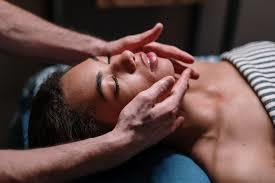Jaw pain, clicking, or tightness when you chew or yawn? You might be dealing with TMJ dysfunction, a common but often overlooked condition that can affect your comfort and your daily life.
At BodyLab Recovery Science in St. Catharines, our physiotherapist Kristina Jerry and chiropractor Sarah Hopkins work together to help patients relieve jaw pain, restore movement, and get back to pain-free function.
What Is TMJ Dysfunction?
TMJ stands for temporomandibular joint the hinge that connects your jawbone to your skull, allowing you to talk, chew, and yawn.
TMJ dysfunction (TMD) occurs when this joint or its surrounding muscles become irritated, tight, or misaligned.
It’s surprisingly common affecting millions of Canadians each year and can range from mild discomfort to severe pain that interferes with eating and speaking.
Common Symptoms of TMJ Dysfunction
People with TMD often experience:
-
⚡ Jaw pain or stiffness, especially when chewing or yawning
-
🔊 Clicking, popping, or grinding sounds in the jaw
-
😣 Headaches or ear pain that mimic tension or migraines
-
😬 Difficulty opening or closing the mouth fully
-
🦷 Facial tightness or soreness, especially in the morning
-
🌙 Jaw clenching or teeth grinding (bruxism), often during sleep
Because the jaw is connected to your neck and head muscles, TMJ dysfunction can also cause neck tension, shoulder pain, or headaches.
Common Causes of TMJ Dysfunction
TMJ problems can develop from many factors sometimes more than one at a time:
-
Stress and clenching: Chronic stress often leads to jaw tension and grinding.
-
Teeth grinding (bruxism): Causes overuse of the jaw muscles and irritation of the joint.
-
Postural issues: Forward head posture or neck tightness can alter jaw alignment.
-
Jaw injury or trauma: Whiplash, dental procedures, or impacts can irritate the joint.
-
Arthritis or joint inflammation: Age-related changes or autoimmune conditions can affect the TMJ.
-
Muscle imbalance: Tightness in facial or neck muscles can create uneven pull on the jaw.
- Dental Procedures
Understanding what’s driving your symptoms is key to effective, long-lasting relief.
How Physiotherapy Helps TMJ Dysfunction
Physiotherapy plays a major role in both assessing and treating TMJ dysfunction. At BodyLab, our physiotherapist Kristina Jerry uses a combination of manual therapy, exercise, and education to reduce pain and restore normal movement.
Your treatment may include:
-
🖐️ Manual joint mobilization: Gentle, targeted techniques to improve how your jaw moves and reduce stiffness.
-
💆 Soft tissue release: Massage and trigger-point therapy to relax tight muscles in the jaw, neck, and shoulders.
-
🧘 Posture and movement retraining: Exercises to correct neck and jaw alignment that contribute to tension.
-
💡 Home care and stress management strategies: Including relaxation and jaw awareness exercises to break clenching habits.
Physiotherapy not only eases pain but also helps prevent future flare-ups by addressing the root cause not just the symptoms.
How Acupuncture Supports TMJ Pain Relief
Acupuncture, when used alongside physiotherapy, can provide powerful relief for TMJ dysfunction. It works by stimulating specific points to reduce muscle tension, calm the nervous system, and improve blood flow around the jaw and face.
Benefits of acupuncture for TMJ include:
-
🌿 Decreased pain and inflammation
-
💆 Relaxation of overactive jaw and facial muscles
-
🧠 Reduced stress and tension-related clenching
-
💨 Improved circulation for faster healing
At BodyLab Recovery Science, acupuncture is performed by trained professionals who tailor treatments specifically for TMJ dysfunction, integrating it seamlessly with physiotherapy care.
When to See a Professional
If you’ve been dealing with jaw pain, clicking, or tension that doesn’t go away, it’s time to get assessed.
TMJ dysfunction rarely resolves on its own and early intervention can prevent chronic pain or long-term joint changes.
Our physiotherapist Kristina Jerry uses a combination of physiotherapy techniques and acupuncture to assess your jaw mechanics, identify contributing factors, and design a personalized treatment plan to relieve your symptoms naturally.
Find Relief from TMJ Pain in St. Catharines
At BodyLab Recovery Science, we take a whole-body approach to TMJ care — combining physiotherapy, acupuncture, and education to help you move, speak, and live comfortably again.
Your jaw (and your neck, head, and shoulders) will thank you.




